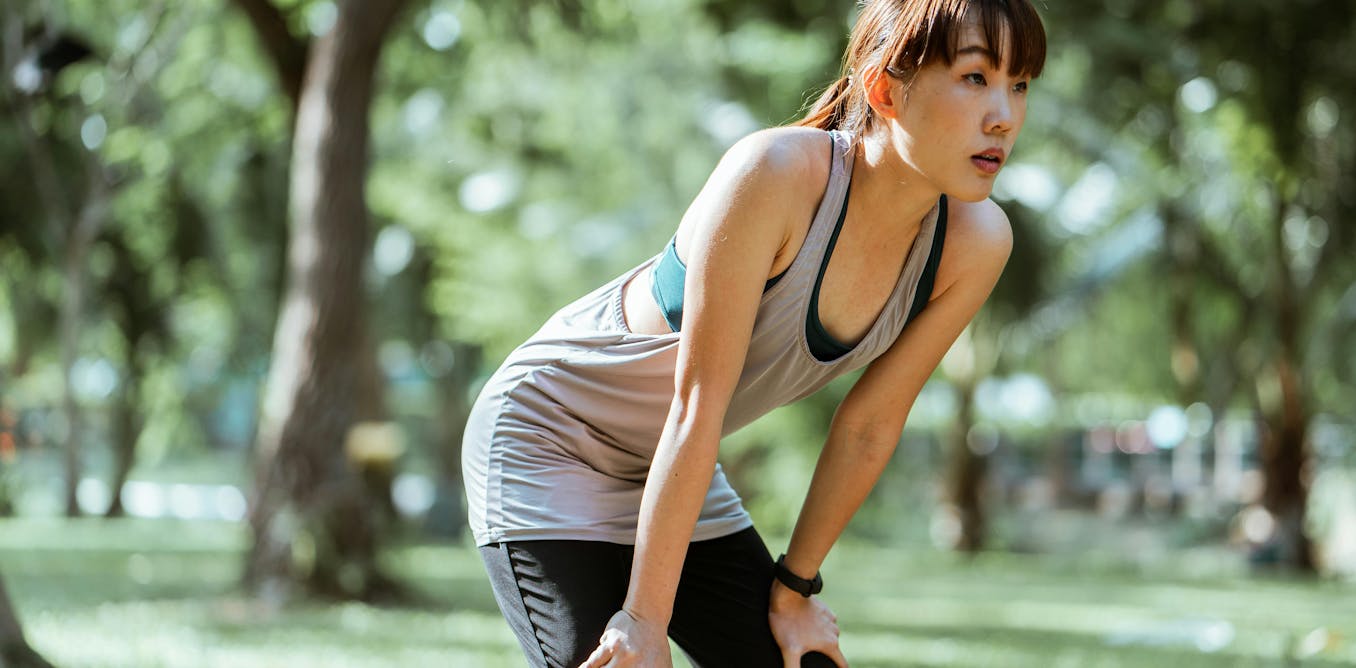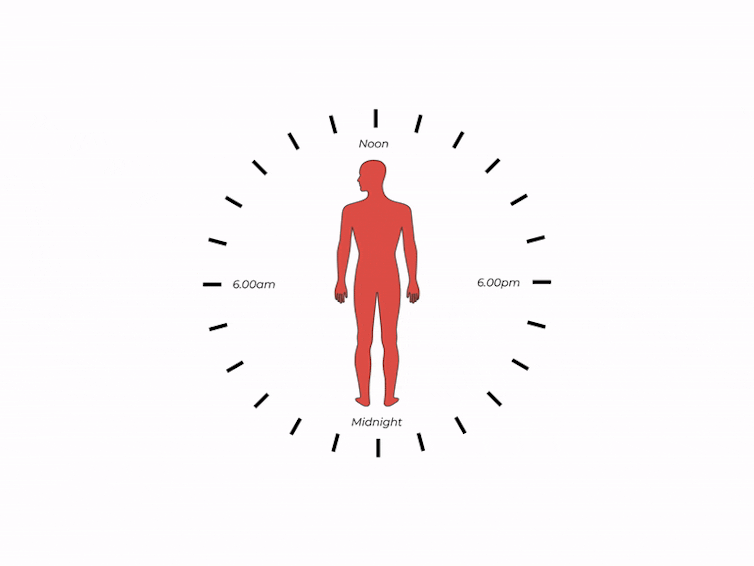Your alarm goes off. Somehow you manage to get dressed, drag yourself to the gym, and start squatting.
But why does it feel so hard? Your legs are heavy and the weight you lifted only a couple of days ago – in the afternoon – feels almost impossible.
No, you’re not imagining it. There’s a large body of evidence to suggest most of us are stronger, more powerful, and have better endurance later in the day.
There are several reasons exercising can feel much harder first thing in the morning. Here’s why, and how you can adjust to morning exercise if you need to.
Your circadian rhythm affects your workout
Your body has a natural 24-hour clock that regulates hormones, body temperature and when you feel most awake or ready for sleep.
This clock is called your circadian rhythm. It is controlled by the brain but can also be influenced by external factors such as sunlight. This might explain why exercising in the morning in winter can be especially hard for some of us.
Research shows your circadian rhythm is clearly linked to exercise performance, which tends to follow a daily pattern.
Most people reach their peak between 4 and 7pm. This means we tend to be stronger, faster and more powerful in the afternoon and early evening.
We don’t know exactly why. But there are a few potential explanations.
Matt Garrow/The Conversation.
Adapted from Delos, CC BY
Body temperature
Your core body temperature is at its lowest around 5am, and steadily increases across the day. When your body temperature rises, your muscles contract more efficiently. We think this is part of the reason people are typically stronger and more powerful later in the day.
Hormonal fluctuations
Insulin – the hormone that regulates blood sugar (glucose) levels – tends to be highest in the morning. This leads to a decrease in blood sugar, meaning less glucose your body can use as fuel, likely affecting how hard you can push.
Nervous system function
While we don’t know exactly why, there is some evidence to suggest your nervous system is better at sending signals to your muscles throughout the day. This allows you to use more of your muscle fibres during exercise, essentially making you stronger.
But what if I’m a morning person?
Your sleep chronotype can also affect exercise performance.
This describes your natural inclination for sleep and wakefulness at certain parts of the day – basically whether you’re a “morning person” (an “early bird”), or feel more productive and alert in the evening (a “night owl”).
Research shows night owls with a late chronotype do notably worse when exercising in the morning, compared to people with an early chronotype.
While we don’t know why this is the case, it might be that night owls experience smaller fluctuations in hormones and temperature throughout the day – although this is just speculation.
Interestingly, being sleep deprived seems to affect physical performance in the afternoon more than in the morning. So if you’re staying up late and not getting much sleep, you may actually find it easier to exercise the next morning than the next afternoon.
So, does timing matter?
Whatever time of day, if you can feel yourself working you will make progress – for example, increasing muscle strength and improving aerobic fitness and heart health.
So if you’re exercising to get bigger, stronger and fitter, the timing doesn’t actually matter.
Besides, when we exercise often comes down to motivation and convenience. If you like to exercise earlier in the day and that suits you best, there’s no reason to change.
But you can adapt if you need
If you have a sporting event coming up in the morning – and you usually train in the afternoon – you might want to prepare by doing some early exercise so you’re at your peak.
There is evidence to suggest that repeatedly training in the morning can close the gap between your afternoon and morning performance.
Basically, your body can get used to exercising at a particular time, although it will likely take a few weeks to adapt.
Finally, if you find exercising close to bedtime makes you feel too alert and is disrupting your sleep, you may want to try doing something more gentle at night and/or exercising earlier in the day.


